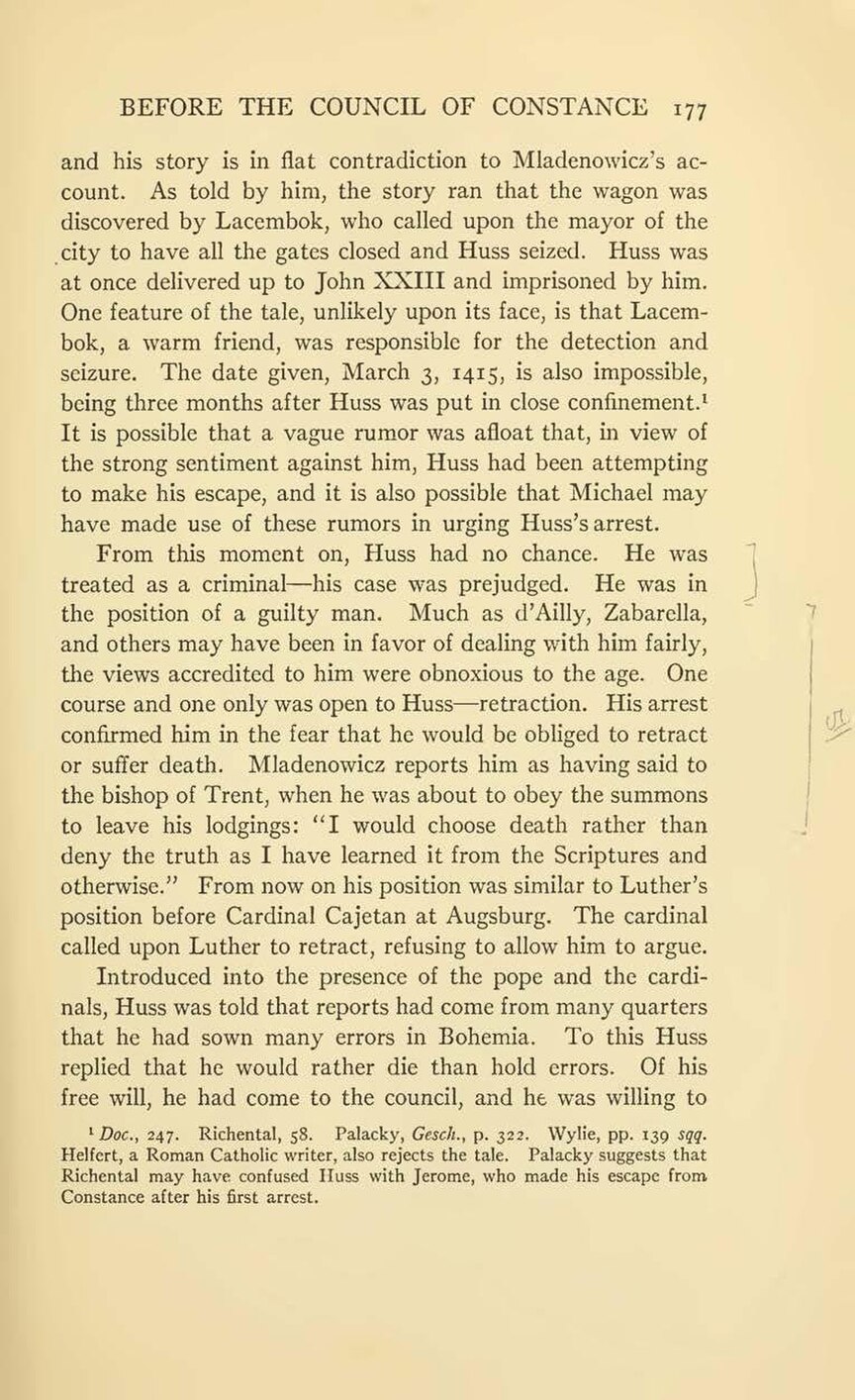and his story is in flat contradiction to Mladenowicz’s account. As told by him, the story ran that the wagon was discovered by Lacembok, who called upon the mayor of the city to have all the gates closed and Huss seized. Huss was at once delivered up to John XXIII and imprisoned by him. One feature of the tale, unlikely upon its face, is that Lacembok, a warm friend, was responsible for the detection and seizure. The date given. March 3, 1415, is also impossible, being three months after Huss was put in close confinement.[1] It is possible that a vague rumor was afloat that, in view of the strong sentiment against him. Huss had been attempting to make his escape, and it is also possible that Michael may have made use of these rumors in urging Huss’s arrest.
From this moment on, Huss had no chance. He was treated as a criminal—his case was prejudged. He was in the position of a guilty man. Much as d’Ailly, Zabarella, and others may have been in favor of dealing with him fairly, the views accredited to him were obnoxious to the age. One course and one only was open to Huss—retraction. His arrest confirmed him in the fear that he would be obliged to retract or suffer death. Mladenowicz reports him as having said to the bishop of Trent, when he was about to obey the summons to leave his lodgings: “I would choose death rather than deny the truth as I have learned it from the Scriptures and otherwise.” From now on his position was similar to Luther’s position before Cardinal Cajetan at Augsburg. The cardinal called upon Luther to retract, refusing to allow him to argue.
Introduced into the presence of the pope and the cardinals, Huss was told that reports had come from many quarters that he had sown many errors in Bohemia. To this Huss replied that he would rather die than hold errors. Of his free will, he had come to the council, and he was willing to
- ↑ Doc., 247. Richental, 58. Palacky, Gesch., p. 322. Wylie, pp. 139 sqq. Helfert, a Roman Catholic writer, also rejects the tale. Palacky suggests that Richental may have confused Huss with Jerome, who made his escape from Constance after his first arrest.
